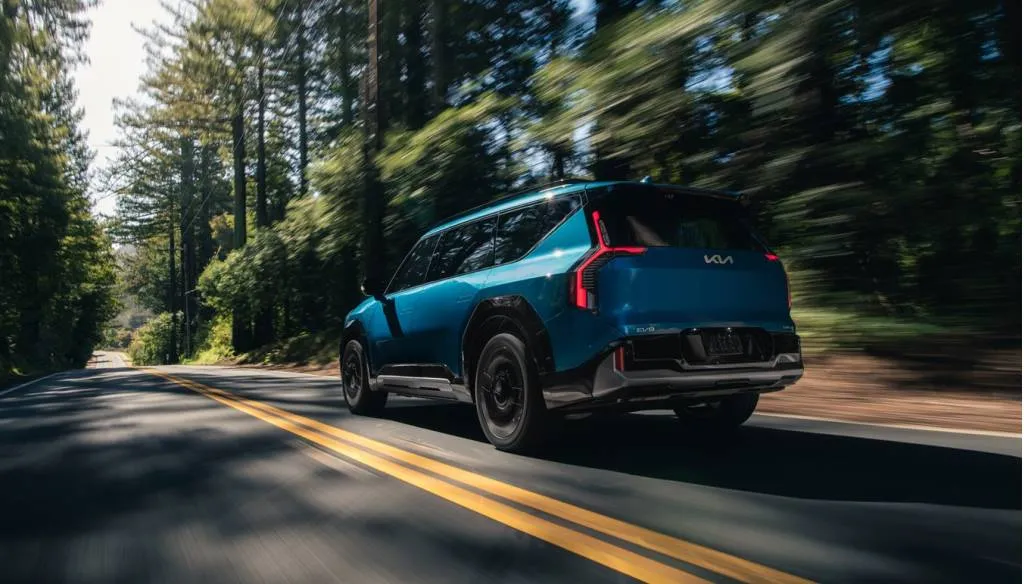2024 Kia EV9 reservations open soon, price tops out at $75,395

Reservations for the 2024 Kia EV9 open October 16, the automaker announced Monday alongside full pricing details for the three-row electric SUV.
Kia revealed a starting price of about $56,000 last month, announcing a $54,900 price for the base EV9 Light in single-motor, rear-wheel drive form before destination. The automaker has now confirmed a $1,495 destination charge, bringing the total cost $56,395 for this version. Reservations also require a $750 refundable deposit.

2024 Kia EV9
The base Light produces 215 hp and 258 lb-ft of torque and has a 76.1-kwh battery pack. A Light Long Range model (starting at $60,695) gets a 99.8-kwh pack shared with dual-motor all-wheel drive models, although output from the single motor drops to 201 hp.
The all-wheel drive Wind ($65,395) and Land ($71,395) models both generate 379 hp and 443 lb-ft of torque, which Kia says enables a 5,000-lb towing capacity with an optional towing package. The top GT-Line model has the same horsepower rating as the other dual-motor models, but torque increases to 516 lb-ft. The price also increases to $75,395 with destination before options.
EPA range ratings haven’t been published yet, but Kia last month estimated about 225 miles for the base Light, around 300 miles for the big-battery Light Long Range, and 270-285 miles for the rest of the lineup.

2024 Kia EV9
That means the price for a range-topping EV9 is comfortably under the $80,000 price cap built into the federal EV tax credit. And while the first U.S.-market EV9s will be built in South Korea, with deliveries slated to begin before the end of 2023, Kia plans to begin manufacturing the EV9 at its West Point, Georgia, plant in 2024. So it’s likely the EV9 will qualify for the full $7,500 tax credit in 2024, when the credit will become an instant dealership rebate for most buyers.
In a preview drive last month, Green Car Reports found the EV9 to be a family-size commitment to EVs. The EV9 will also be the first EV available for the U.S. with automaker-supported bidirectional charging hardware making it capable not just of backing up the home (V2H) but also helping smooth the grid (V2G) functionality.